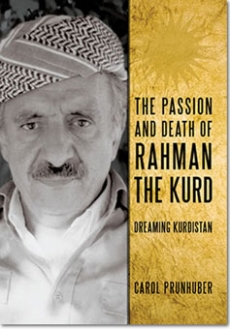| Éditeur : iUniverse | Date & Lieu : 2009-01-01, Bloomington |
| Préface : | Pages : 357 |
| Traduction : | ISBN : 978-1440-178-16-0 |
| Langue : Anglais | Format : 150x230 mm |
| Code FIKP : Liv. Ang. 3314 | Thème : Politique |
|
Présentation
|
Table des Matières | Introduction | Identité | ||
 Versions
The Passion and Death of Rahman the Kurd: Dreaming Kurdistan "Against the backdrop of the revolution that overthrew the Shah and through the shadowy back streets of the Cold War, Carol Prunhuber's Passion andDeath ofRahman the Kurd resurrects the doomed trajectory of assassinated Kurdish leader Abdul Rahman Ghassemlou. "A portrait against the grain: not a peshmerga with his bandolier, but a nationalist intellectual in a well-tailored suit turned movable target far from the Kurdish mountains. A Third World aristocrat who will quickly veer off the Marxist road from revolution to democracy. Jean-Marc Illouz | |||||
| Preface When I think of Abdul Rahman Ghassemlou, whisky somehow comes to mind. Jonathan Randal
| ||||